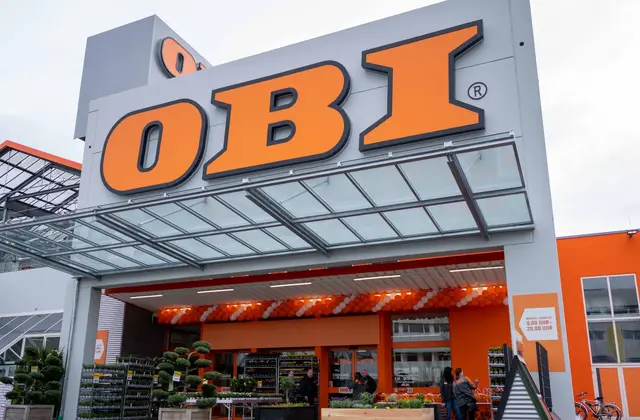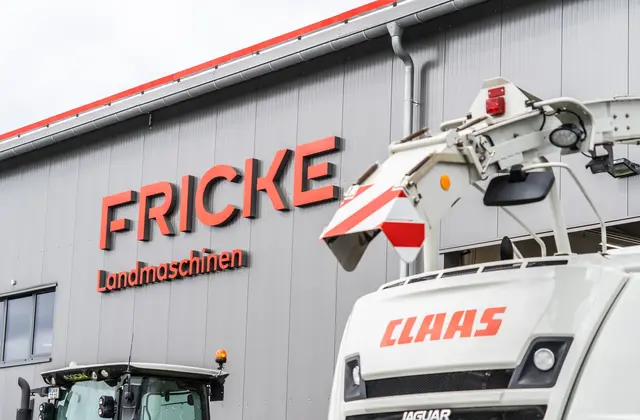Transformation in Breuninger’s shop search: Increasing efficiency and reducing costs with open source
How replacing an old system and developing a new search technology can optimize search maintenance and performance
Reliable and powerful search solutions are crucial for e-commerce companies. Our client Breuninger, one of Europe's leading fashion, beauty and lifestyle destinations in the premium and luxury segment, was facing a challenge: their previous search system was reaching capacity and reliability limits.
In this article, we describe how we supported Breuninger in replacing an existing search system and how we were able to solve challenges and reduce operating costs at the same time by developing an open source-based technology.
Challenge
Existing solution for search and category pages too cost-intensive
Issues with efficiency and usability in the back office, as well as performance problems
Difficulties with scalability and integrating new languages and countries
Solution
Replacement of the legacy system with an open-source-based solution using a Solr cluster
Gradual rollout to ensure high user acceptance
Development of a dedicated back office to simplify maintenance of search and category pages
Result
Cost savings
Improved performance and increased scalability of the system
Greater flexibility, reliability and stability
Implementation of new features such as a fallback function and planned vector search
Faster, easier operation and better visibility into existing configuration (i.e. increased back-office efficiency)
neuland has been supporting Breuninger since 2013 in the development of the online shop, backend systems, and tools for maintaining and managing the shop. As the online shop expanded into international markets, we faced challenges together with Breuninger around scalability and the integration of additional languages and countries. An evaluation phase showed that the existing search system could no longer meet these requirements. This led to the decision to switch to an open-source solution in order to improve the cost-benefit ratio and address the scaling issues.
The new search solution allows us to respond to future requirements and continuously introduce improvements. On the foundation we’ve now created, we can integrate innovative enhancements such as vector search and thus improve micro KPIs. The team quickly found its rhythm and reliably achieved the goals we set. Overall, by replacing the old system, we’ve gained more freedom and control over our search.
Gradual implementation for maximum acceptance
Breuninger was using a proprietary search technology that lacked flexibility and was operating at the limits of its data scalability and capacity. An expansion of the system would have required considerable investment in new hardware and licenses. The previous maintenance of the search and category pages was very time-consuming. Our aim was to develop a reliable and scalable solution that was also more economical. Together, we opted for an open source-based solution based on a self-hosted Solr cluster. This approach gave us the flexibility to make the necessary adjustments while controlling costs. The implementation took place in several steps:
Analysis of the existing system landscape: we carefully examined which functions needed to be retained and which needed to be improved.
Gradual introduction: In order not to overwhelm users and to ensure a high level of acceptance, the new solution was introduced gradually so that we could go live early.
Own back office: We developed our own back office for maintaining the search and category pages, which makes administration much easier.
When replacing an existing system, it is crucial to be aware of the complex and historically grown system landscape. It is important to carefully analyze why certain elements exist - be it due to historical developments, omissions or previous requirements that may no longer be relevant today. In addition, certain components may have been implemented due to specific customer requirements.
These factors are critical to the replacement process and provide valuable insight into the needs of the people who will ultimately operate and maintain the search system. The focus should not be on integrating all new concepts, but on replicating what is really needed. Thanks to the extensive expertise of the team responsible, potential pitfalls could be avoided from the outset.
It was important that the process was handled carefully. We knew we had to bring everyone along on this journey and meet people where they currently are. Approaching the whole thing very early on in a highly agile way proved extremely helpful, as it allowed us to deliver rapid results with real added value.
Stability and innovation: measurable success of the new search technology
The success of our implementation was mainly measured in terms of improved performance and reduced costs. With the previous search solution, Breuninger would have had to accept significant cost increases for each additional country and each new language. The new search solution is more performant and requires less hardware. Although specific metrics such as the conversion rate were not the focus, the qualitative analysis of the search results showed a significant improvement here too.
New features such as a fallback function for the image-based similarity search were implemented. This works like a kind of safety net that is activated if the primary method for searching for similar objects fails or does not deliver sufficient results. General changes can be adapted quickly and the team is not dependent on the roadmap of an external provider. All of these improvements ultimately led to positive feedback from users.
One notable success of the new solution is its high reliability and stability. We were able to quickly dispel any fears regarding technical scalability and personnel requirements. The expertise in the area of Solr, the continuity and the team members' deep understanding of Breuninger's requirements contributed significantly to the success of the project. The pragmatic, agile way of working and close collaboration also enabled us to develop a tailor-made solution that not only meets current requirements, but also takes future developments into account. The integration of the vector search is already being planned in order to further improve the solution for the future.
We are proud to support Breuninger in such a special process of system replacement and the development of a new search technology and look forward to further joint steps towards continuous improvement and innovation.
Do you need expert guidance to unlock the full potential of your search function?
We are happy to support you.
From our blog

Precision Power: Flexible Search at OBI

Die Kunst der guten Suche: Datengetriebene Such-Optimierung

Mastering B2B Complexity: How neuland and the Fricke Group built a flexible, ERP-agnostic Commerce Platform


